Partners: Their Love Migrated from the Dance Floor to a Fair-Trade Foods Business
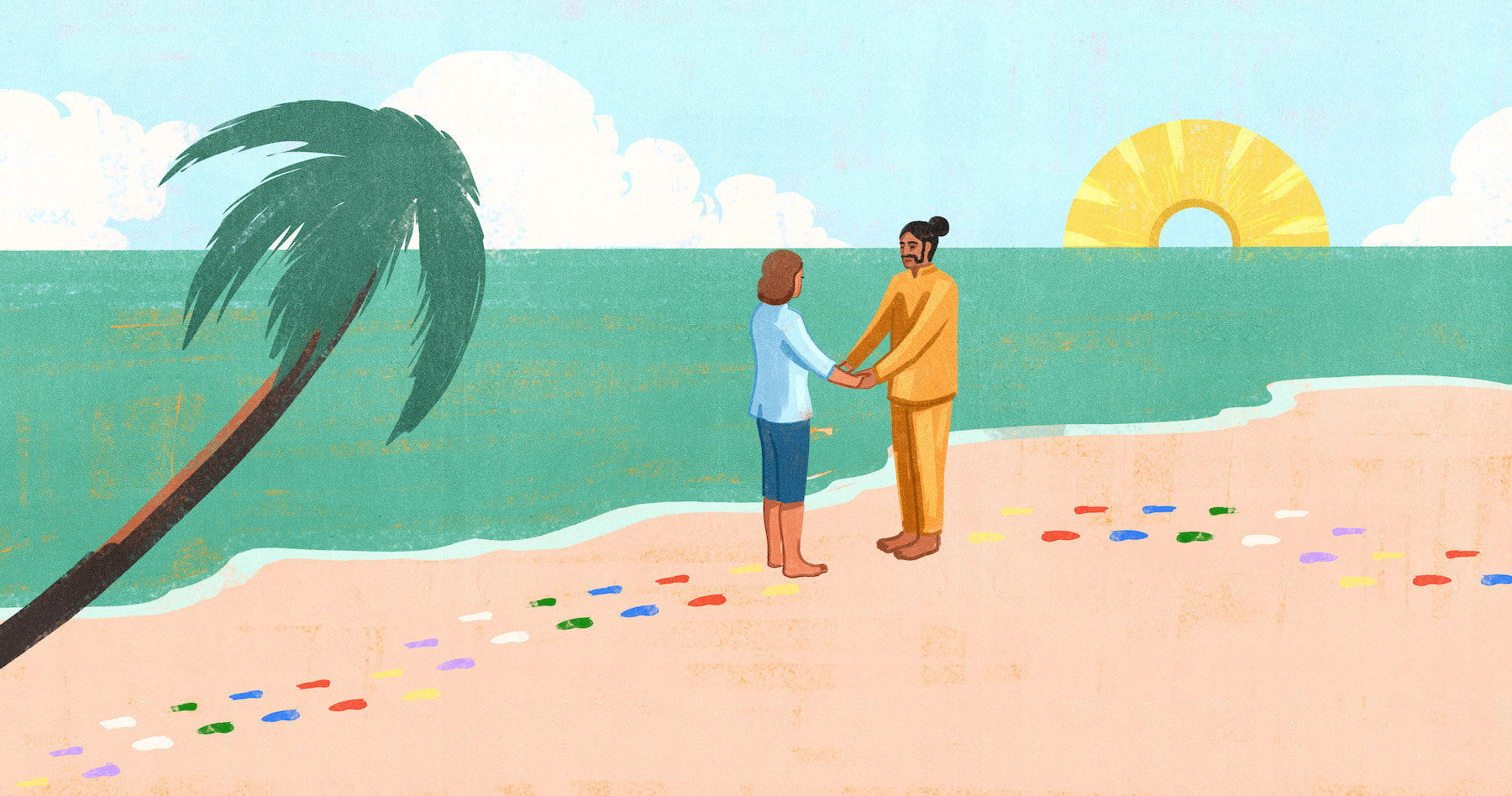 In this heartfelt and candid series, Partners—in Business and Bed, couples discuss the good, the bad, and the ugly of living and working together.
In this heartfelt and candid series, Partners—in Business and Bed, couples discuss the good, the bad, and the ugly of living and working together.
Welcome to Marise May and Chanaka Kurera’s international love story.
Before the couple shares how they navigate squabbles and sticky situations—like that time they had to sell $40,000 worth of food and didn't have a penny to their name but did have a shiny new six-month-old depending on them—let’s rewind to their beginning. The year: 2003. The setting: a hip-hop club in the depths of Tokyo, where some guy was dancing inappropriately with Marise on the dance floor. Now here’s Chanaka, from Sri Lanka, to tell you what happened next.
“I thought, ‘OK, this is my moment to become a hero in a Bollywood movie,’ ” Chanaka, now 44, recalls. “And so I took certain actions that maybe impressed her, I guess. But—”
“I thought I was going to be dating a gangster when I met him,” says Marise, 40, who’s from Montreal.
“I wasn’t at all,” Chanaka says.
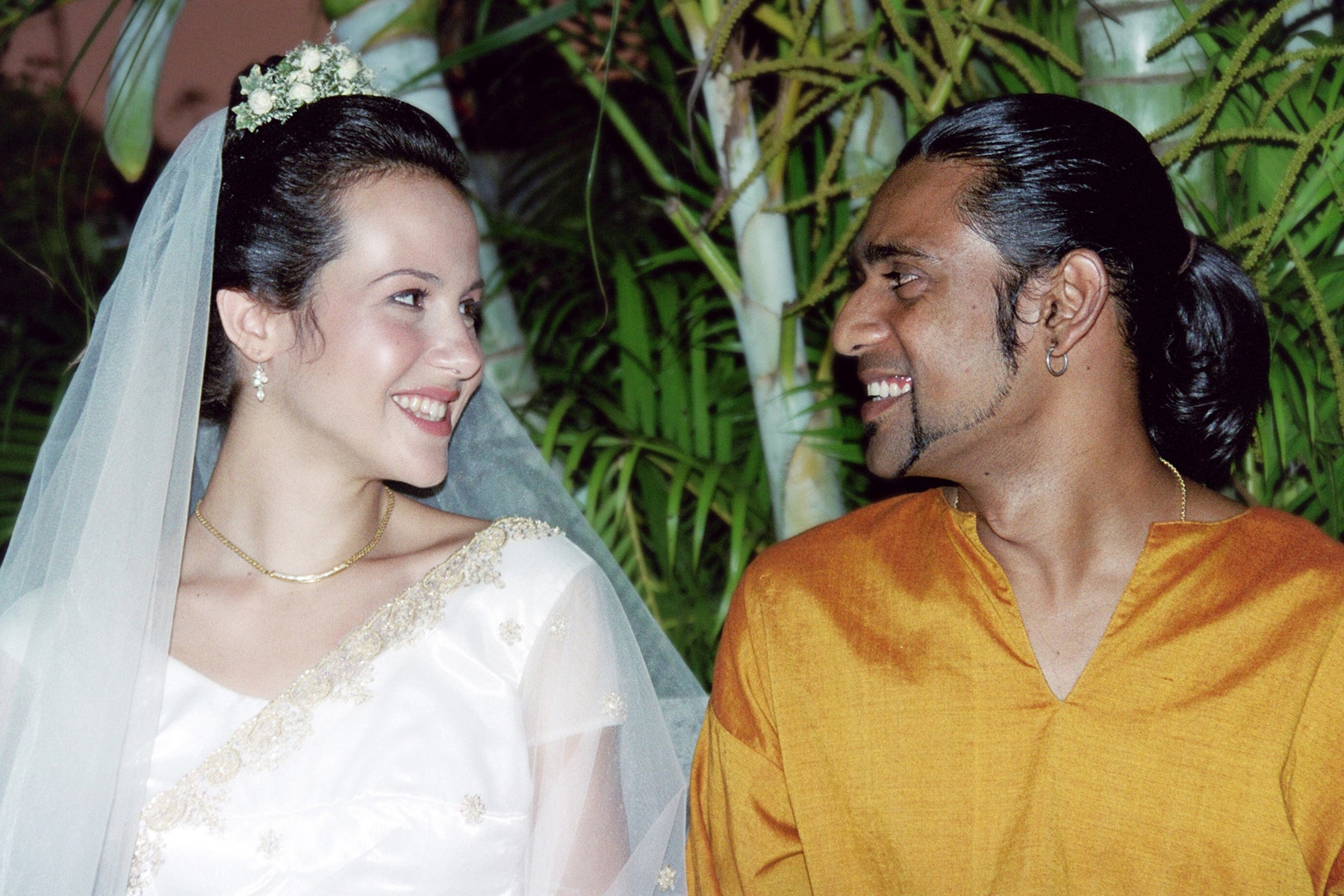
So let’s talk business and romance: how well did these mix together for you when you both moved to Montreal?
Marise: When we decided to start a family, it was literally the same day that we really decided to go ahead with our business: Cha’s Organics, which sells fair-trade and organic spices, tea, jackfruit, and coconut milk. There’s romance but then there’s family life too, which is taking care of our two daughters and being there for each other. Sometimes that might mean less romance in the sense of less candlelit dinners but more bonding because we’re living together, we’re working together, we’re raising a family together. So I think we’re really close. Obviously it has its challenges, but we’re a lot closer than other couples that I see that I think lead their separate lives.
What does a typical date night look like?
Chanaka: It’s always better without kids.
Marise: It’s funny because it hardly ever happens. Sometimes you forget time off from the kids. We usually try to go and enjoy a nice meal together.
Chanaka: We go for a movie and—
Marise: But that’s like—when you say typical date night, it’s like it hardly ever happens. It’s usually date mornings. It’s usually just, like, a non-dairy latte in the morning.
Is there a dream date night scenario?
Chanaka: Well, we tried one of those. Like, we wanted to go to Sri Lanka, but me and Marise only together. And it was approved by kids, and we thought, “Oh wow! We’re going to go," even though Marise had some hesitations leaving them behind. That only lasted, like, three, four days, and then they’re like, “Oh, you’re going for two weeks! We have to come with you.”
Marise: You know one of the best times that we had? When the kids were at sleepaway camp last year. We went to a public space in Montreal with hammocks, feel the breeze, and just go and relax by the water. That kind of thing.
We’re done with 5 am nightclubs. We did that in Tokyo.
How did you initially feel about working with each other, and what are your thoughts on it now?
Chanaka: Oh my God! I personally never thought that Marise would be my business partner. When I think about it—looking at my personality, and what kind of person could put up with me as a business partner—I couldn’t think of any person other than Marise.
Marise: I was never really even considering what it would be like to work with Chanaka. I just felt like it would be a good idea.
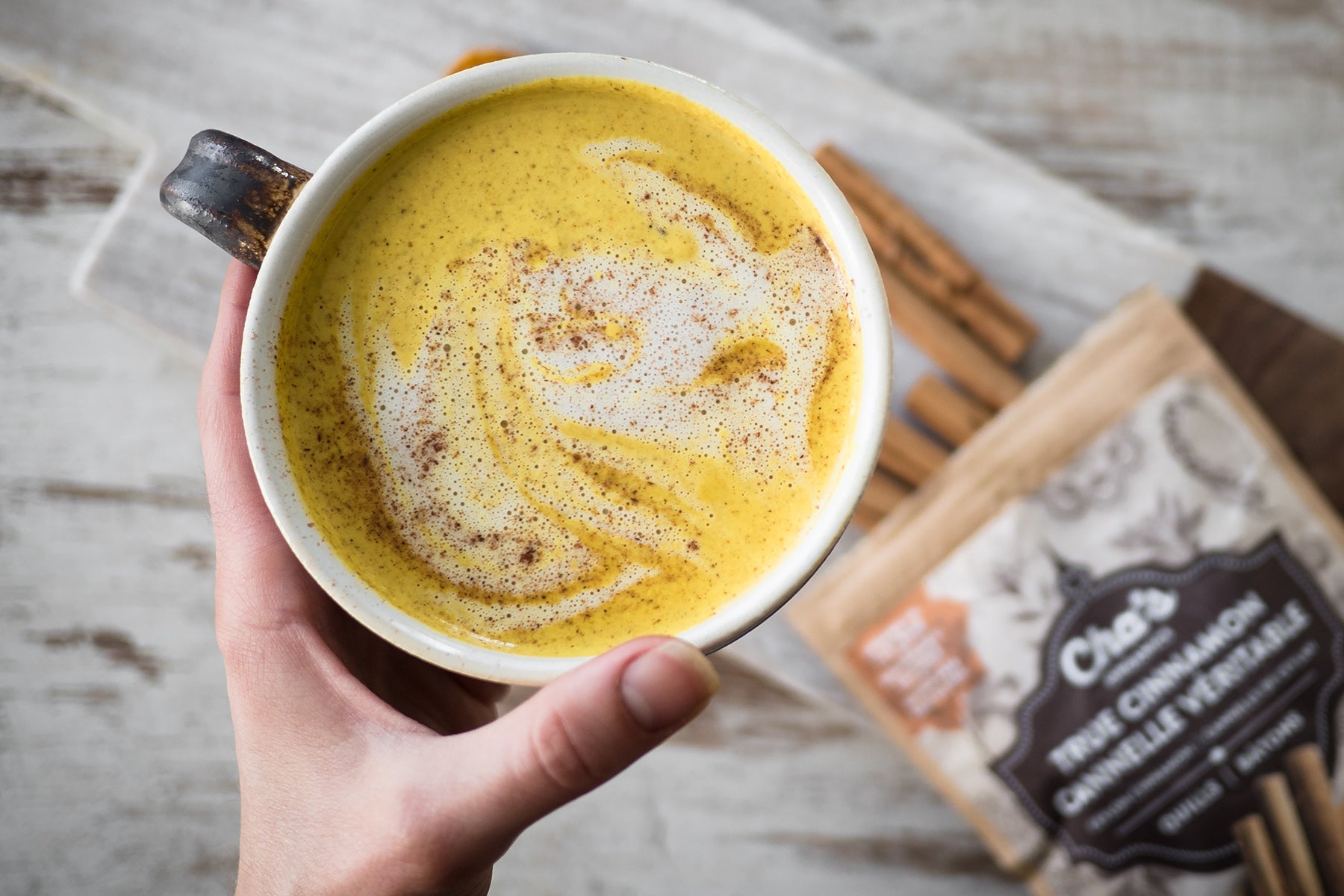
Share a sticky situation you’ve run into together, either personally or professionally. How did you overcome it?
Marise: Like, how sticky? Let me think. Early on, really, we didn’t have a very strong background in business. This was more of a passion project for us. We just went ahead and launched because we believed in it, and it really was the power of our belief that drove us—and drove others also—to believe in us.
Early on we needed help clearing our first container of spices. I think there was $40,000 of product in that container. We didn’t have money at all. So that was a pretty big responsibility to us. We had a six-month-old baby—
Chanaka: Yeah, and we didn’t have a penny.
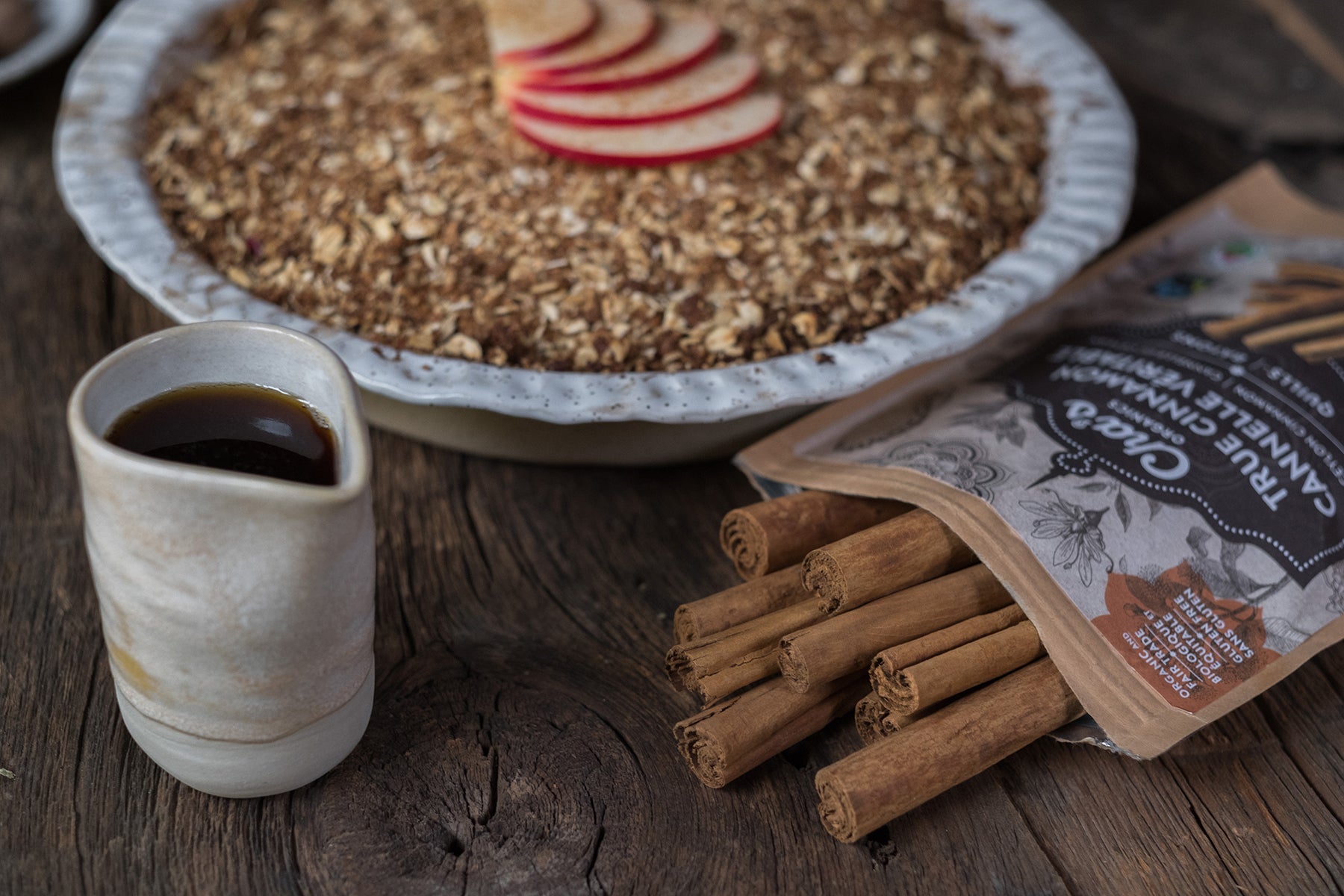
Marise: Chanaka got the owner of a distribution company to purchase $20,000 of product by guaranteeing he would go on the road with him and sell everything, which he did. It wasn’t easy because at that time we were a new family. I was running the admin side of the business, but Chanaka spent a lot of his time on the road and basically went door-to-door with that distributor.

How do you approach a fight, or squabble, at home versus at work?
Marise: I don’t think we approach it differently. I’m usually right so …
Chanaka: Yeah. So she’s a pretty stubborn case, and at the end of the day, we at work mostly agree with her. It’s funny because we turn around and say, “Oh man! She’s right.”
Marise: I was joking. Because, obviously, not 100%. But I have a pretty good track record.
How do we approach it? Usually we start in the wrong way, but if it goes really way off, then we bring ourselves back. There can be a lot of ego. It’s our passion. It’s like a baby. So he sees it one way, I see it another way. We can sometimes have very opposing views. One thing that we’ve gotten better at is just trying to hear each other out and really trying to understand: “OK, what is it exactly that you’re trying to say?” And taking all the drama out of it.
How do you divvy up business responsibilities? And what about at home?
Marise: We’re not very Type A. It’s really more like who’s on call that day at the office, or at work, or who might be home with the kids and responsible for the house? In the business, I’m really focused on marketing and administration. Chanaka is more on the supply chain, sales. We always had our roles divided, but they were unofficial. And now that we’ve been able to grow our team and delegate, our roles are pretty well defined.
What’s been your biggest victory together in business?
Marise: Oh, we have a few of them. We’ve won prizes. One of our biggest victories is just everything we do to support the fair-trade and farming community in Sri Lanka, and it’s an ongoing victory.
Chanaka: The impact that we have for fair-trade and organic farmers in Sri Lanka is very, very important for me personally. I do speak the language, I understand the culture, but I’m Sri Lankan. The impact, like all our packaging materials, is made by this women’s co-op in one of the poorest areas in Sri Lanka.
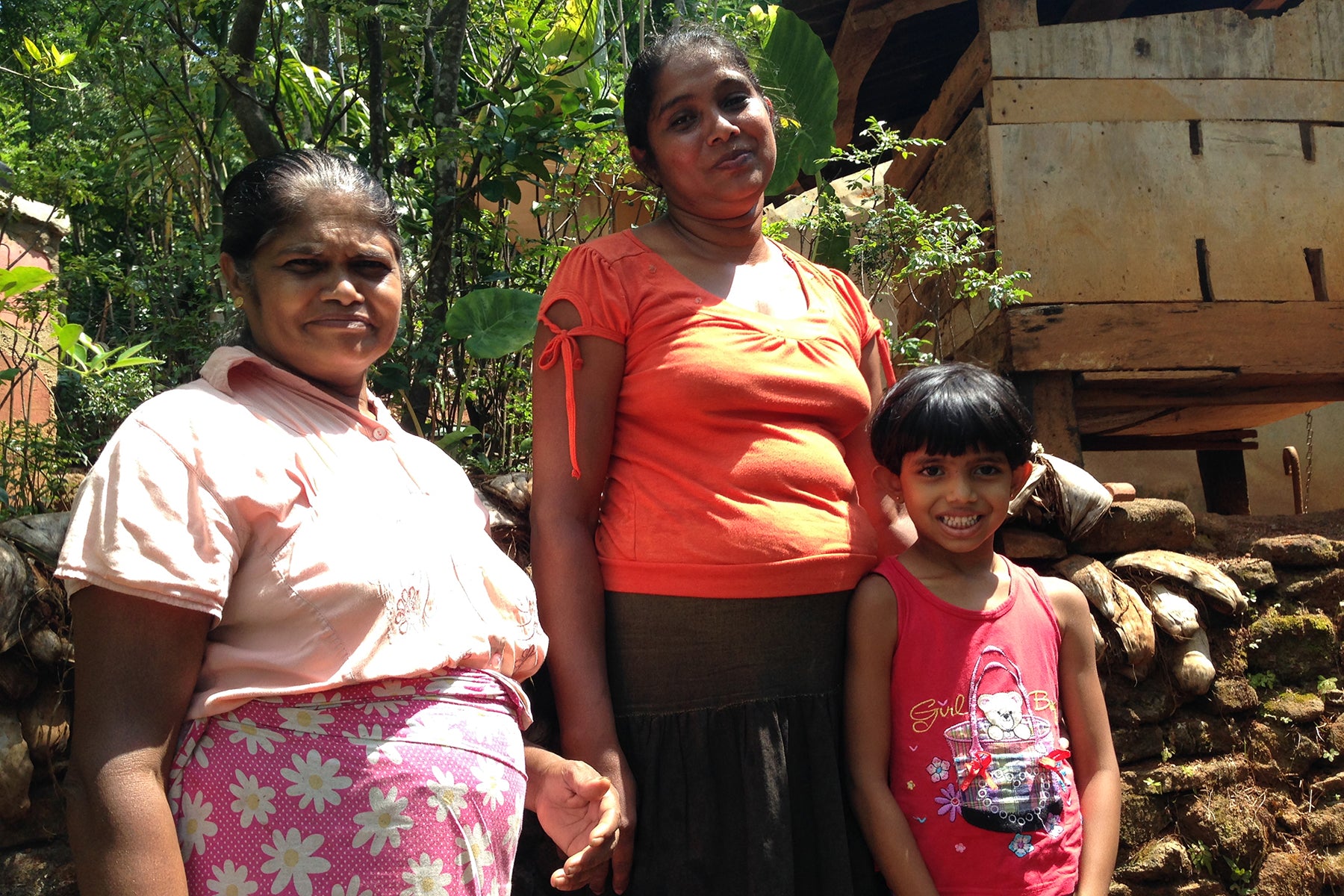
People who live around there, especially women, they have to work in sugarcane plantations, in incredible sun, and there’s poisonous snakes, and they cover themselves with cardboard and work so hard but still only make, like, $300 per year. Now they’re at home with their kids and don’t have to go clock in and clock out at a workplace. Instead they make our packaging materials from upcycled papers. Now these women make around $300 or $400 a month.
Do you have any business, or personal, goals you’ve set together?
Marise: I was just telling Chanaka this morning: I have a goal to save the world.
Chanaka: Yes. Well, what I see for the first 50 years of our life is we work so hard, we break ourselves trying to make money, and we really ignore the plate of food that we put on a dinner table. We don’t care about what we eat. And then, after 50, our bodies start breaking down, and then all that money you made basically goes to a doctor. So what I try to achieve out of this is to make the most incredible food that there can be.
Marise: So people can be healthy as they go about the day, and as they create delicious meals that can empower them with health. And for ourselves, too, so that people can live longer and be happier.
Illustration by Shout